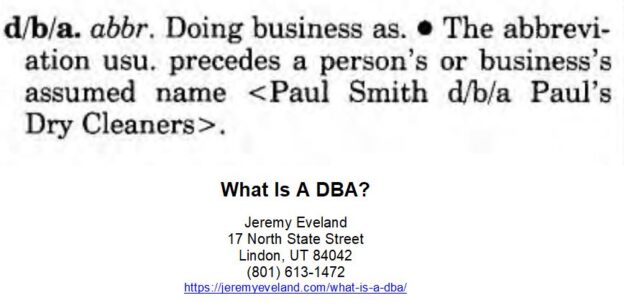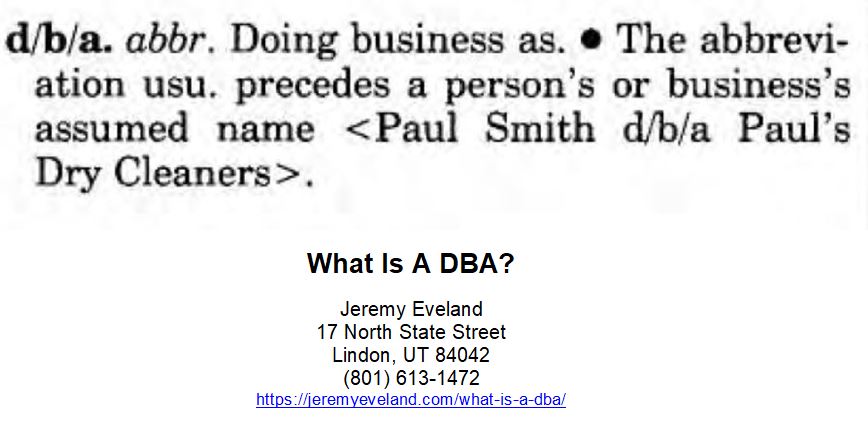When it comes to military deployment and child custody, understanding the legal protections in place is essential. In this article, we will explore the rights and safeguards available to servicemembers and their families during deployment. Whether you are a military parent facing deployment or navigating the complexities of custody arrangements, knowing your rights can provide peace of mind and ensure the best interests of your children are protected. By shedding light on this important topic, we hope to empower individuals with the information needed to make informed decisions and, if necessary, seek the guidance of legal professionals like attorney Jeremy Eveland.
The Impact of Military Deployment on Child Custody
Understanding the Challenges of Military Deployment
Military deployment can have significant effects on child custody arrangements. When a parent in the military is deployed, it can disrupt the stability and routine of the child’s life. The absence of a parent during deployment can create emotional and psychological challenges for the child, who may struggle with feelings of separation, anxiety, and even fear. It is crucial for both parents to understand and address these challenges in order to ensure the well-being of the child.
The Emotional and Psychological Effects on Children
The emotional and psychological effects of military deployment on children can be profound. The sudden absence of a parent can lead to feelings of abandonment and confusion. Children may struggle to understand why their parent is leaving and may worry about their safety. The extended periods of separation can also strain the parent-child relationship, making it difficult for the child to feel a sense of stability and security. It is important for parents to provide emotional support and open lines of communication to help children cope with these effects.
Maintaining Parent-Child Relationships during Deployment
During military deployment, it is crucial to maintain the parent-child relationship as much as possible. Both parents should make an effort to stay connected and involved in their child’s life. Utilizing technology such as video calls and emails can help bridge the distance and provide opportunities for regular communication. Maintaining consistency and routine in the child’s life can also provide a sense of stability and security. It is important for both parents to work together to ensure that the child feels supported and loved during this challenging time.
The Legal Framework for Military Deployment and Child Custody
Federal Laws and Regulations
There are several federal laws and regulations that provide legal protections for military parents and their child custody arrangements. These laws recognize the unique challenges faced by military families and seek to ensure the best interests of the child are upheld during deployment. It is important for parents and their attorneys to have a thorough understanding of these laws in order to navigate the legal process effectively.
Uniformed Services Former Spouses’ Protection Act (USFSPA)
The Uniformed Services Former Spouses’ Protection Act (USFSPA) is a federal law that addresses the division of military pensions and benefits in divorce cases. This law also gives state courts the authority to divide military retirement pay as part of the property division process. Understanding the implications of the USFSPA is essential for military parents involved in child custody disputes, as it can impact financial support and other aspects of the parenting plan.
The Servicemembers Civil Relief Act (SCRA)
The Servicemembers Civil Relief Act (SCRA) provides legal protections for military members, including those involved in child custody matters. Under the SCRA, deployed service members have the right to have proceedings in civil cases, including divorce and child custody disputes, stayed or postponed. This allows military parents to focus on their duties and responsibilities during deployment without the added stress of legal proceedings.
Creating a Comprehensive Parenting Plan
Considerations for Military Parents
When creating a parenting plan, military parents must consider the unique challenges and uncertainties that come with deployment. It is important to address issues such as communication, parenting time, and decision-making authority in the plan. Both parents should work together to create a plan that takes into account the best interests of the child and allows for flexibility during deployment.
Addressing Deployment in the Parenting Plan
The parenting plan should include provisions specifically addressing deployment. It should outline the procedures for communication and visitation during the deployment period. This may include establishing a schedule for video calls or determining the logistics of in-person visits when feasible. It is important to anticipate and address potential issues that may arise during deployment to minimize conflict and ensure a smooth transition for the child.
Modifying the Parenting Plan in Response to Deployment
It is important to recognize that deployment may require modifications to the existing parenting plan. The plan should include provisions for these modifications, including the process for requesting changes and the criteria for evaluating the request. When considering modifications, the court will prioritize the best interests of the child and may take into account the length of deployment, the child’s age, and any additional circumstances that may arise during deployment.
Communication and Co-Parenting during Deployment
Utilizing Technology for Remote Communication
Technology provides valuable tools for remote communication between deployed parents and their children. Video calls, emails, texting, and social media platforms can help bridge the distance and allow parents and children to stay connected. It is important for parents to establish guidelines and routines for communication during deployment to ensure consistent and meaningful interaction.
Establishing a Co-Parenting Communication Plan
A co-parenting communication plan can help facilitate effective communication between parents during deployment. The plan should outline expectations, guidelines, and methods of communication. It may include provisions for regular check-ins, sharing important information about the child, and resolving conflicts in a constructive manner. A well-established communication plan can help maintain a respectful and cooperative co-parenting relationship during deployment.
Maintaining Consistency and Routine
Maintaining consistency and routine in the child’s life is important during deployment. Both parents should strive to uphold established routines, such as bedtime rituals, meal schedules, and extracurricular activities. Consistency can provide stability and a sense of normalcy for the child, even in the absence of one parent. By working together, parents can ensure that the child’s routine is maintained and minimize disruptions caused by deployment.
Temporary Custody Arrangements during Deployment
Appointment of Temporary Custodian
In some cases, it may be necessary to appoint a temporary custodian during deployment. A temporary custodian can be a family member, close friend, or another individual trusted by both parents. The temporary custodian assumes the role of the deployed parent during their absence, ensuring the child’s needs are met and their best interests are upheld.
Requirements for Granting Temporary Custody
The court will consider several factors when deciding whether to grant temporary custody to a designated individual. These factors may include the person’s relationship to the child, their ability to provide for the child’s needs, and their willingness to maintain the parent-child relationship during deployment. The court will prioritize the best interests of the child when making a decision regarding temporary custody.
Legal Considerations for the Temporary Custodian
The temporary custodian must understand their legal responsibilities and obligations while assuming the role of the deployed parent. They should have a clear understanding of the parenting plan, including visitation rights and decision-making authority. It is important for the temporary custodian to maintain open lines of communication with both parents and seek guidance from an attorney if any legal issues or concerns arise.
Child Support Obligations during Military Deployment
The Impact on Child Support Orders
Military deployment can have implications for child support orders. The deployed parent’s income may change during deployment, affecting the amount of child support they are required to pay. It is important for both parents to understand their financial obligations and seek legal guidance to ensure child support orders are appropriately adjusted during deployment.
Modification of Child Support Obligations
If deployment leads to a significant change in the deployed parent’s income, they may seek a modification of the child support order. This modification can help ensure that the child’s financial needs are adequately met during deployment. It is important to follow the appropriate legal procedures to request a modification and to consult with an attorney to navigate the process effectively.
Available Resources for Enforcing Child Support
If a deployed parent fails to meet their child support obligations during deployment, there are legal resources available to enforce the support order. The custodial parent can seek assistance from the court to enforce collection through wage garnishment, interception of tax refunds, and other legal means. It is important for the custodial parent to understand their rights and options when it comes to enforcing child support during a deployment.
Legal Protections for Military Parents
Stay of Proceedings under SCRA
Under the Servicemembers Civil Relief Act (SCRA), deployed service members have the right to have civil proceedings, including child custody disputes, stayed or postponed. This legal protection allows the deployed parent to focus on their military duties without the added stress of legal proceedings. It is important for deployed parents to be aware of this option and to consult with an attorney to ensure their rights are upheld.
Protecting Custody and Visitation Rights
The SCRA also provides protections for deployed parents’ custody and visitation rights. It prohibits courts from making permanent changes to child custody arrangements without clear and convincing evidence that a change is in the best interests of the child. This legal protection ensures that deployed parents are not at a disadvantage when asserting their parental rights during deployment.
Relocation Restrictions for Deployed Parents
Deployed parents may face restrictions on their ability to relocate during deployment. These restrictions are in place to ensure that the child’s best interests are upheld and to prevent potential disruptions to the child’s life. It is important for deployed parents to consult with an attorney to understand any limitations on their ability to relocate and to seek legal guidance if relocation becomes necessary.
Navigating Custody Disputes during Deployment
Mediation and Alternative Dispute Resolution
When faced with custody disputes during deployment, mediation and alternative dispute resolution methods can be helpful in reaching a resolution. These processes offer a less adversarial approach to resolving conflicts and can help parents find mutually beneficial solutions. Mediation and alternative dispute resolution can be particularly beneficial for deployed parents who may not be physically present for court proceedings.
Court Considerations for Deployed Parents
When hearing custody disputes involving deployed parents, courts consider several factors to determine the best interests of the child. These factors may include the length of deployment, the child’s age and needs, the ability of each parent to maintain a relationship with the child during deployment, and any additional circumstances that may arise. It is important for deployed parents to provide evidence and information about their military responsibilities and their efforts to maintain a relationship with the child during deployment.
Enforcing Custody Orders during Deployment
Enforcing custody orders during deployment can present challenges due to the physical absence of the deployed parent. It is important for both parents to communicate openly and work together to ensure compliance with the custody order. If enforcement becomes necessary, the custodial parent can seek legal assistance to ensure the court’s order is upheld. In some cases, the court may appoint a temporary custodian to facilitate the enforcement of the custody order.
The Role of the Family Court and Legal Representation
Understanding the Role of the Family Court
The family court plays a crucial role in resolving child custody disputes during deployment. The court’s primary concern is the best interests of the child. It has the authority to make decisions regarding custody and visitation arrangements, modifications to parenting plans, and enforcement of court orders. It is important for parents to understand the role of the family court and to work with their attorneys to navigate the legal process effectively.
Importance of Legal Representation
Legal representation is essential for military parents involved in child custody disputes during deployment. An experienced attorney can provide guidance, explain the legal protections available, and ensure that the parent’s rights and interests are protected. Having an attorney who understands the unique challenges faced by military families can make a significant difference in reaching a favorable outcome.
Consulting an Attorney for Guidance
If you are a military parent facing challenges related to child custody and deployment, it is highly recommended to consult with an attorney for guidance. An attorney with experience in military family law can help you understand your rights, navigate the legal process, and advocate for the best interests of your child. Don’t hesitate to reach out to an attorney who can provide the support and guidance you need during this difficult time.
Conclusion
Military deployment can have a significant impact on child custody arrangements. Understanding the challenges faced by military families, as well as the legal protections available, is crucial for ensuring the well-being of the children involved. By creating a comprehensive parenting plan, maintaining open lines of communication, and seeking legal guidance when needed, military parents can navigate the complexities of deployment and custody disputes in a way that prioritizes the best interests of their children. If you are a military parent facing child custody issues during deployment, it is important to consult with an attorney experienced in military family law for personalized guidance and support.


















